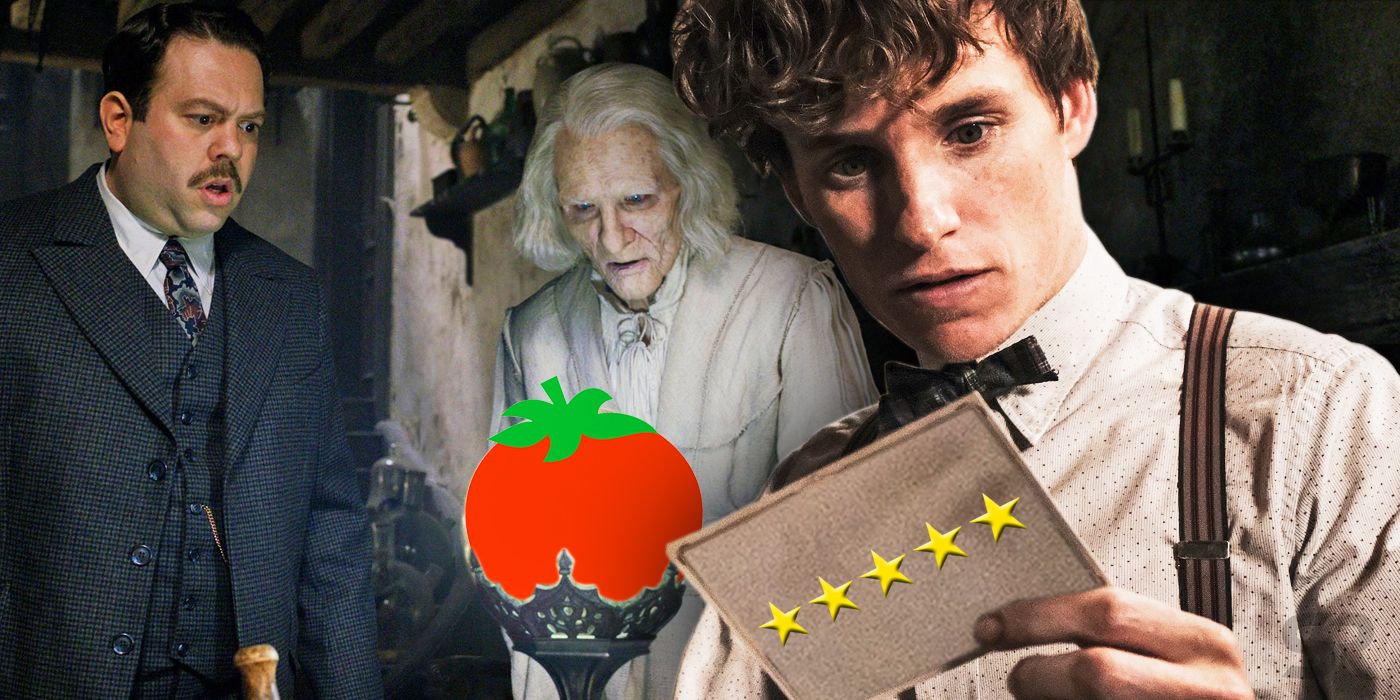
Fantastic Beasts: The Crimes of Grindelwald is not a great movie - but it could have been with just a few changes to its script. The second movie in what is planned as five-part story has emerged as the weakest entry in the Wizard World yet: it's the first negatively reviewed Harry Potter movie and had the lowest opening weekend of the whole series. But is Fantastic Beasts 2 really as bad as all the brutal reviews suggest? Not exactly.
What Fantastic Beasts: The Crimes of Grindelwald is, really, is a great story badly told. It's character-driven tale of innate good battling deceitful evil, highlighting how easy it is for light to succumb to the dark. The problem is that it's delivered with the grim-bland direction of David Yates, forced reverence to Wizarding World lore, and, most damagingly, a script that doesn't know how to draw attention to its strengths. In fact, it feels more like a book, where extended detours into mythology are welcome flavor, not pace-killing distractions. Had this been released by written J.K. Rowling like the Harry Potter stories and then adapted by an experienced screenwriter, Fantastic Beasts 2 could have been something really special. Instead, we have a movie that's far too faithful to the novel that doesn't actually exist.
Related: Fantastic Beasts: The Crimes of Grindelwald's Ending & Twists Explained
This is eerily similar to fellow lore-heavy origin tales the Star Wars prequels and The Hobbit trilogy. While there's been an ever-present backlash against George Lucas and Peter Jackson respectively, the problems with both series is less the very idea and more the execution; Lucas buried genuinely interesting ideas in corny writing and static direction, while Jackson stretched J.R.R. Tolkien's breezy children's book to breaking point. So too, now Rowling has gone so far down the Whomping Willow hole that she's lost sight of what makes this specific tale work.
The continuing adventures of Newt Scamander and his American friends, trying to protect a lost boy from the malevolent forces who want him dead, could have been brilliant. And, with just four changes to the story, we think we could have fixed it.
- This Page: Fixing Grindelwald In Fantastic Beasts 2
- Page 2: Fixing Harry Potter Lore Problems In Fantastic Beasts 2
- Page 3: Fixing Fantastic Beasts 2's Biggest Problem
Hide Grindelwald Until The Third Act
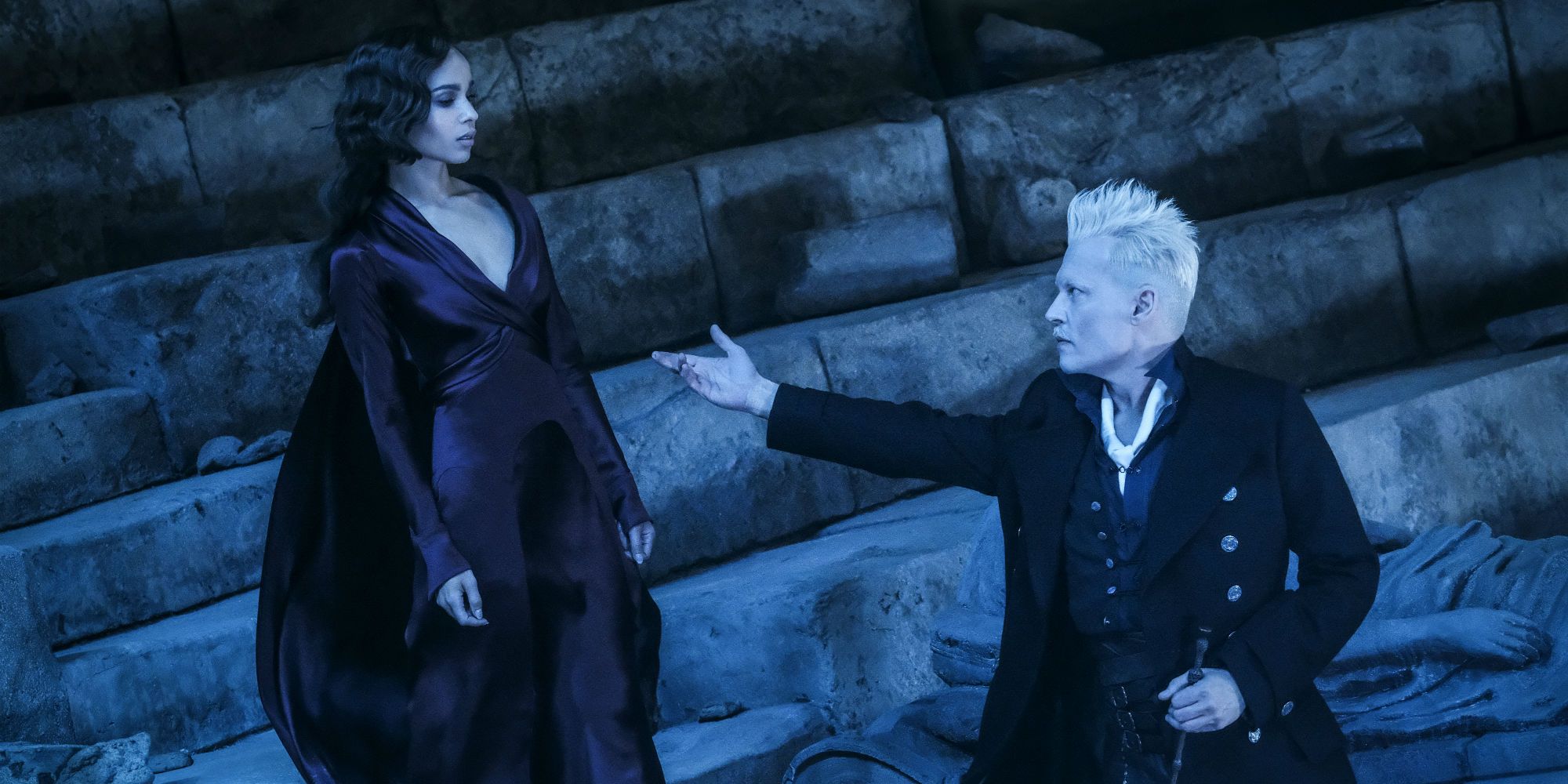
Perhaps the biggest mistake in Fantastic Beasts: The Crimes of Grindelwald is to lean so much on the subtitular villain. It's clear now that Newt Scamander's adventures are a light-hearted entry into the legendary conflict between Albus Dumbledore and Gellert Grindelwald, which is fine enough; Grindelwald is a very interesting character, with a history in Harry Potter films stretching back to 2001, and Newt and Credence's stories are tied directly into his power rise. However, what isn't fine is simply having Grindelwald there be deemed good enough; just like framing The Hobbit against the rise of Sauron did nothing to improve Bilbo's journey, so too does this serve as a confusing distraction. As it is, his recurring presence in the film skews the tone and removes a key element of ambiguity.
Grindelwald as long-presented was a wizard Hitler precursor to Voldemort, a power-hungry opposite to former lover Dumbledore. But that's the myth, not the man. What Fantastic Beasts 2 attempts to do is present him as a figure with more developed, well-argued ideas; as Gellert tells it in the finale, he just wants to avert the muggle-created conflict of World War II, something that compels the likes of Queenie and Credence, rejected by the strict and borderline-bigoted wizarding society of America. It's an interesting addition of period context (and one that may play into a bigger twist regarding his manipulation of Dumbledore).
Related: Fantastic Beasts' Biggest Plot Hole Is Definitely The Elder Wand
The problem is that much of the impact of the smooth-talking, benevolent rallier Grindelwald presents in the third act is undercut by the movie repeatedly returning to him throughout. We see him ordering the murder of muggles (including a baby), getting his hooks into Queenie and communicating with other side characters. None of it is illuminating and only serves to keep the series' new big villain at the forefront of audiences' minds. And that's just lazy writing: despite showing Grindelwald, all Fantastic Beasts 2 is doing is telling us he's a bad guy.
Grindelwald's escape is an effective opening action setpiece, but following the title card he should be a character spoken of but unseen. This would give his motives and purpose an ambiguity the series can't otherwise achieve, allow for better focus on what the actual story is, and actually build up to his rally; as it is, so much time is spent on Grindelwald the film forgets to properly tease the final showdown or the supposed "trap" he's laid. It'd also be less Johnny Depp, which is no bad thing.
Page 2: Fixing Harry Potter Lore Problems In Fantastic Beasts 2
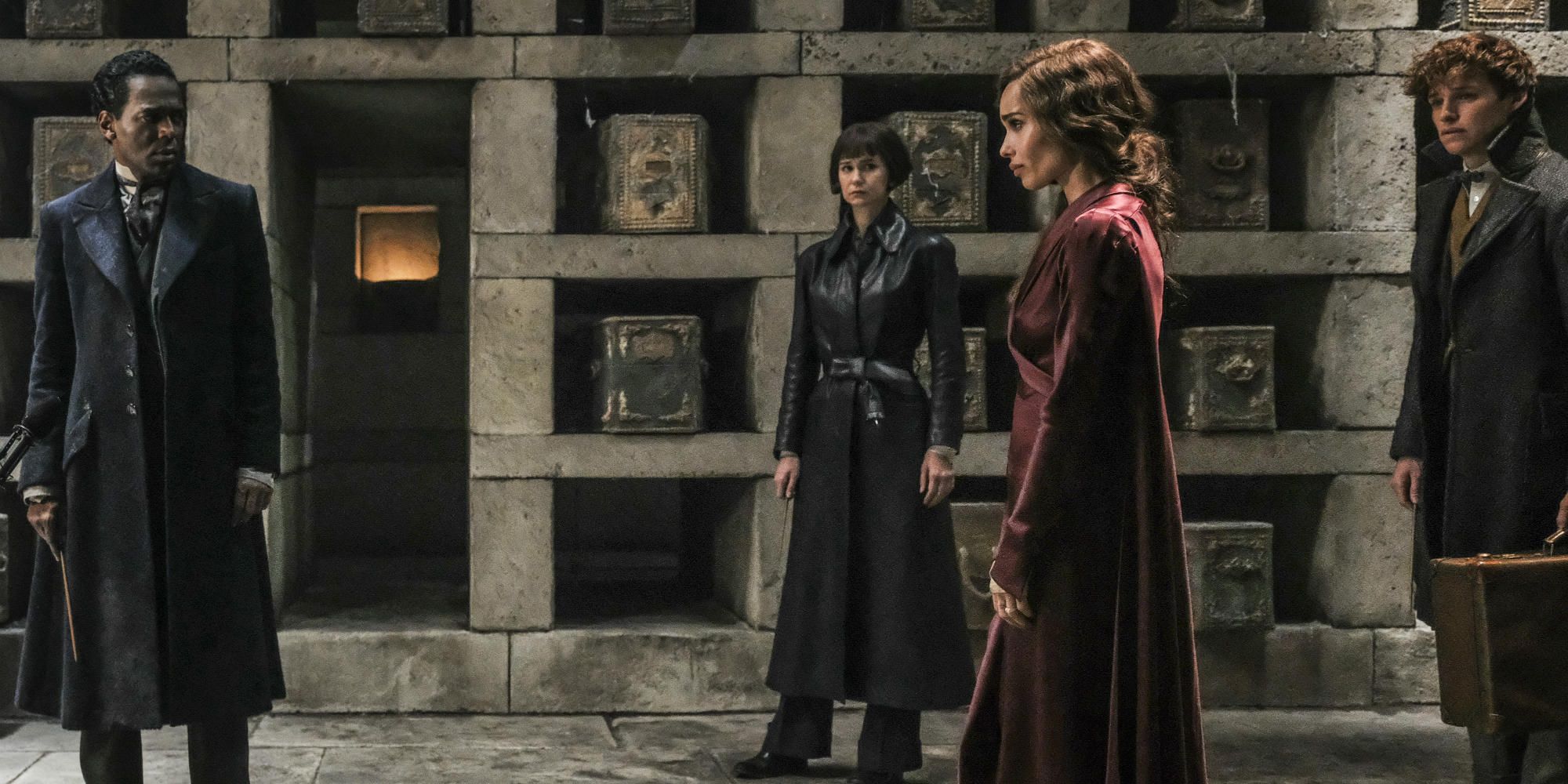
Don't Treat The Lestrange Twist Like Internet Speculation
The big reveal at the end of Fantastic Beasts: The Crimes of Grindelwald is that Credence Barebone is actually Aurelius Dumbledore, Albus' hitherto unknown brother. While this has certainly divided Harry Potter fans based on its potentially continuity-altering ramifications, it's not actually something that we want to change - especially as there are some potentially interesting story directions for Rowling to take the franchise in because of it.
What should be changed, however, is how the Aurelius twist was set up. To try and obfuscate anybody guessing Credence was a Dumbledore, Rowling employed a double twist at the start of the third act. Throughout much of the movie, characters talked in hushed whispers about rampant speculation about Credence's heritage, slowly pointing towards him being Corvus Lestrange. This is finally "revealed" when the main characters assemble in the family tomb, only to be immediately disproven by Leta Lestrange.
Related: Fantastic Beasts: The Crimes of Grindelwald's Unanswered Questions
It's a terrible plot thread, totally imbalanced, needlessly convoluted and perversely rushed. The rumblings of rumors regarding Corvus Lestrange are basically the Wizarding World's equivalent of internet speculation, with Rowling building mystery by having characters not say what everybody they're talking to already knows. And then, the truth - which gives the film its second case of child murder - is provided so quickly there's no time to let it sit. The end result is that audiences never at any point actually believe Credence was Corvus (unless, ironically, they were part of the pre-release speculation online).
A much leaner, more effective plotting would be to have the Corvus theory laid down very early on, allowing Newt, Credence and the audience to accept it as the movie snakes its way through Paris. Then, when Leta comes into the picture properly, she has something concrete to debunk. This would remove one of Fantastic Beasts 2's most indulgent, lore-heavy dialogue scenes, but would also give Credence a proper arc, something the plot's subject does not have.
Remove All The Harry Potter-Only Characters (At Least From The Trailers)
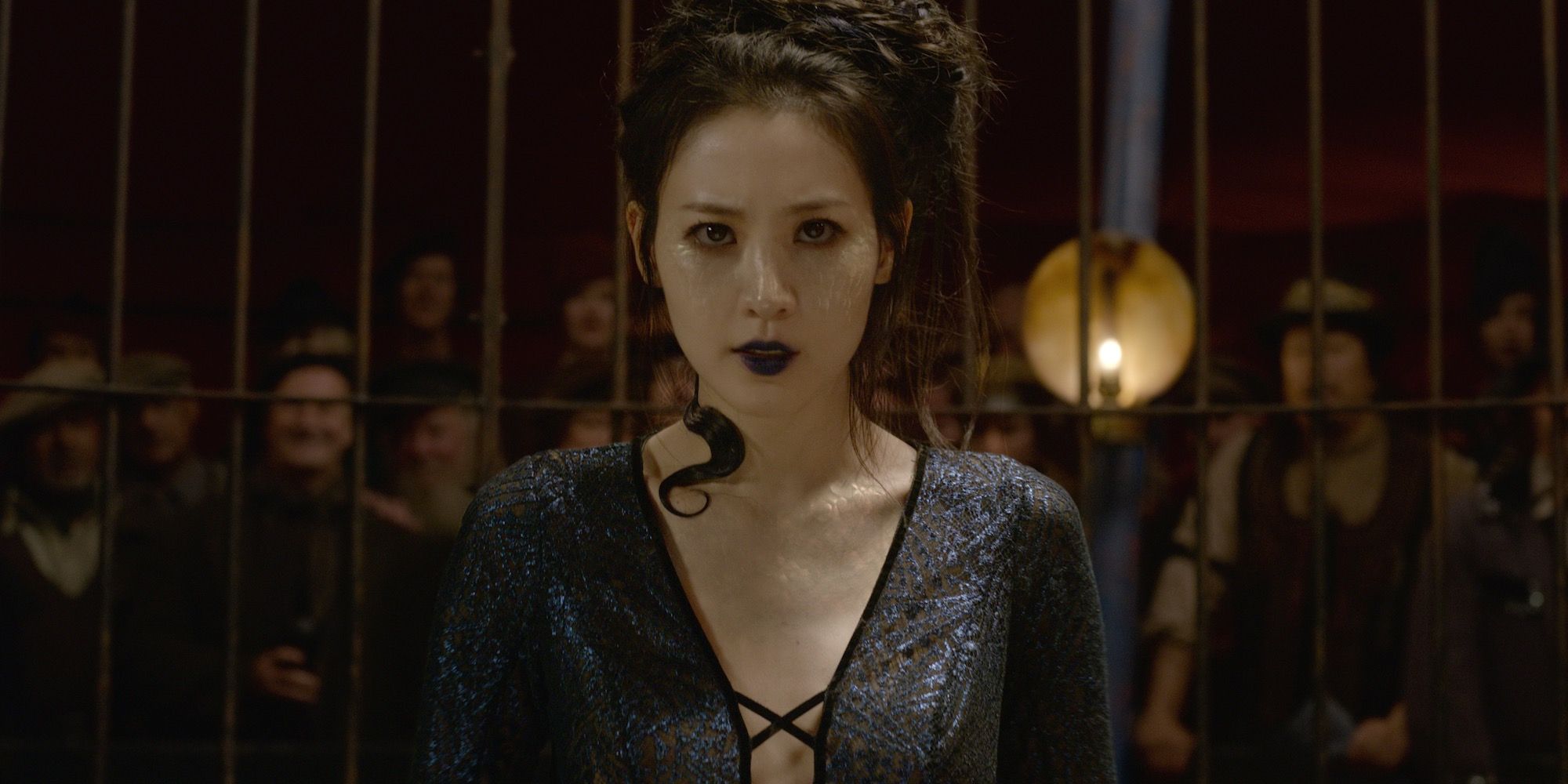
One of the main reasons for the comparisons between modern-day Rowling and prequel-era George Lucas is how Fantastic Beasts has become increasingly obsessed with populating its wider cast with Harry Potter characters, providing mostly irrelevant backstory. Of course, this is somewhat intrinsic: right up front there's Newt Scamander, author of one of Harry's schoolbooks, backed by Albus Dumbledore against Grindelwald. But Fantastic Beasts 2 also provided tangential backstory to Nagini (in human form), Nicolas Flamel (complete with poorly-stored Philosopher's Stone), Fawkes, Professor McGonagall (making a plot hole in the process), the Lestrange family, and, of course, introduced another member of the Dumbledore clan.
This sort of obsessive connectivity in a prequel story - such as making Boba Fett a perfect copy of the source for the namesake army of the Clone Wars - makes the world feel smaller, robbing original events of their once-organic nature. And more so than with Star Wars or The Hobbit, it began to feel like the singular point of Fantastic Beasts. Rowling's already been painstakingly expanding the Wizarding World by way of Pottermore, stageplays and tweets, but these films make it so much more prominent.
Related: Fantastic Beasts 2's Biggest Harry Potter Retcons (And Plot Holes)
Frankly, it's just not needed. While there's logic to Nicolas Flamel being in Paris in 1927 and potentially a tragic tale to be told with Nagini, all these appearances serve to only distract from what's the movie's trying to do. They reek of a lack of confidence in Newt, Tine, Queenie and Jacob, missing that they were what audiences warmed to in Fantastic Beasts and Where to Find Them.
At the very least, these glorified cameos shouldn't have been pushed forward in the marketing; Fantastic Beasts 2 actual handles most of the canon winks and tweaks well, but thanks to them being so prominent in trailers at the expense of Newt and co., they comes across as considerably more pervasive than they need to.
Page 3: Fixing Fantastic Beasts 2's Biggest Problem
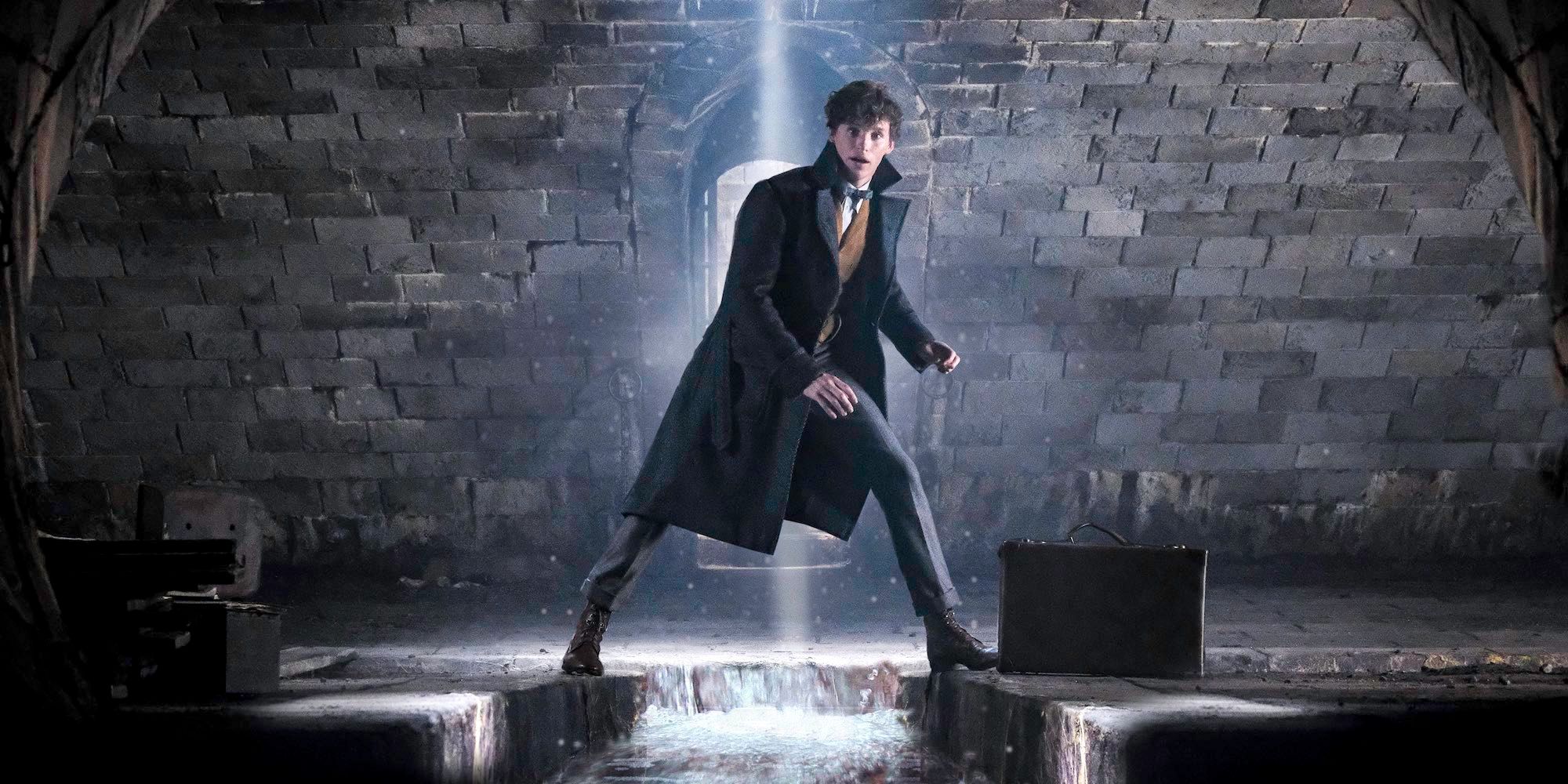
Keep Fantastic Beasts As Newt's (And Credence's) Story
For all the connections to wider Harry Potter canon, every fix so far has ultimately been at the service of one thing: Newt Scamander. A Hufflepuff well-versed in mumble-core awkwardness whose only way through a tough spot is his knowledge and love of magical creatures, there is no doubt this alternative-protagonist a should be the center of this entire series. It's named after his schoolbook, after all; Fantastic Beasts' should be Newt's franchise as much as Harry Potter's is, well, Harry Potter.
But The Crimes of Grindelwald tries to steal it from him. Newt is by presentation still the protagonist, and his lovable gang are certainly key support, but the film's hard pivot into being a Dumbledore and Grindelwald prequel (by way of so much extraneous world-padding) means he's left with half a role. He doesn't influence events in any major way (because by nature of the escalated scale he can't), but neither does the film give him much time to be impacted by them. This leaves Fantastic Beasts 2 without any proper identity, perplexing given how well the focused scenes on this quartet worked (Newt awkwardly flirting with Tina in the French Ministry eclipses any wand-waving action).
Related: Fantastic Beasts 2: 20 Things You Completely Missed In Crimes Of Grindelwald
Every change that's been suggested aims to address that, reframing the story back onto Newt. But the thinking can be extended: if a scene doesn't involve Newt, Tina, Queenie or Jacob directly, its inclusion should be directly questioned. So much of the filler feels like filler because it's never connected to the audience avatars. Instead of a multi-part flashback for Leta in Hogwarts featuring Newt, why not explore her past through the doting brother of her fiance? And instead of showing the Ministry's Auror hunting Credence is a stooge of Grindelwald with a magic phonecall, make it a proper twist Newt uncovers.
This is how Harry Potter did it, after all. The books are exclusively from Harry's perspective bar a selection of introductory chapters, and while the movies introduced a few cutaway scenes out of necessity, the overwhelmingly singular focus meant audiences had an unwavering connection to Harry, Ron and Hermione. Fantastic Beasts could have told the grand tale of Dumbledore and Grindelwald but had it unfold as a subplot in a more classically whimsical Wizarding World entry. Instead, it tried to be both Harry Potter and Pottermore at the same time.
The only exception to all this, really, is Credence. Despite in the first movie being part of an adjunct subplot where Ezra Miller made some bizarre acting choices, the Aurelius Dumbledore twist makes clear he's an essential part of this story. The problem is, Credence is barely in The Crimes of Grindelwald; he's an object whose ownership is to be discussed, not a character tortured by a lack of identity. This makes the final twist less satisfying, but also misses a great opportunity: he could have been that much-needed link between Newt's creatures and the bigger picture. Giving Credence some more screentime in place of the dozen or so tertiary figures and a proper link to the rest of the story (without his potential Lestrange heritage fuelling it) could have been the key to making Fantastic Beasts 2 great.
-
Fantastic Beasts: The Crimes of Grindelwald is unlikely to be a franchise killer; the Wizarding World has too much momentum for one dud to stop it (and it's not like the low box office opening is that disastrous, all things considered). But the fact remains that it's turned the prequel series into one of promise, not proof. That it sets up a more interesting Fantastic Beasts 3 shouldn't give it a free pass, although also goes to show there is the kernel of a great idea in there - it just needed someone to find it.
Next: Fantastic Beasts 3: Release Date, Story Details & Every Update
from ScreenRant - Feed https://ift.tt/2BlhyRc





No comments: